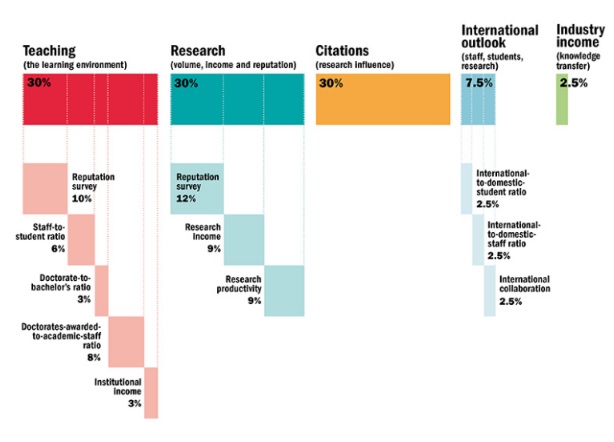UPF, the 11th best young university in the world
 Times Higher Education (THE), which produces one of the most prestigious and influential university rankings in the world, has published the 2018 edition of the ranking of young universities entitled Young University Rankings 2018, which includes the top two hundred institutions worldwide under 50 years old.
Times Higher Education (THE), which produces one of the most prestigious and influential university rankings in the world, has published the 2018 edition of the ranking of young universities entitled Young University Rankings 2018, which includes the top two hundred institutions worldwide under 50 years old.
In this seventh edition, UPF has positioned itself as the 11th best young university in the world, improving six positions compared to 2017, in which it came 17th. Thus, UPF stands out as the first university in Spain and 5th in Europe.
UPF improves six positions compared to 2017 and stands out as the 1st university in Spain and 5th in Europe.
The results of the ranking were made public at the summit of young universities that Times Higher Education is holding in Tampa (Florida) on 5-7 June. Under the title “Young universities coming of age: the future is here“, several leaders in higher education from around the world are debating the challenges and opportunities that the current educational scenario holds for younger universities.
A methodology adapted to young universities
In the ranking of the best young universities, Times Higher Education uses the same indicators as for the global ranking but awards less weight to the indicators linked to reputation in order, as accurately as possible, to reflect the characteristics of the youngest institutions.
Hence, this ranking is based on 13 indicators which evaluate five major dimensions of the universities’ activity:
- Teaching: with several variables related to the global process of teaching such as the number of students per teacher or the academic reputation of the institution (30%)
- Research: based on the revenue for research, scientific output and the reputation of the institution in this field (30%)
- Citations received: in order to measure the influence of research results (30%)
- Internationalization: with ratios that measure the ratio of local versus international students and teaching staff, in addition to international collaboration with other institutions (7.5%)
- Income from the private sector: from knowledge transfer (2.5%)
All told, the results for UPF stand out for citations received (with a score of 97.1 out of 100) and internationalization (for which it scores 62.3 out of 100).
The citations received indicator measures an institution’s influence when disseminating the knowledge generated by its research. Specifically, it measures the number of times academics from around the world cite the papers published by a university. This year, Elsevier, the supplier of bibliometric data used by THE, has examined nearly 62 million citations as well as more than 12.4 million journal articles, abstracts, conference proceedings, and books and chapters of books published in the last five years, according to THE reports. According to the ranking, “citations help to show us how much each university is contributing to the sum of human knowledge: they tell us whose research has stood out, has been picked up and built on by other scholars and, most importantly, has been shared around the global scholarly community to expand the boundaries of our understanding, irrespective of discipline”.
In addition, internationalization evaluates, on the one hand, the ability of a University to attract students and teaching staff on a global scale and, on the other, the percentage of articles that the faculty of an institution produces with at least, with one lecturer from a foreign institution.

